Detroit’s Urban Farming Revolution: How Farmonaut is Empowering Community Gardens and Food Sovereignty
“Detroit’s urban farming revolution has led to over 1,500 community gardens, covering approximately 165 acres of land.”
Welcome to the heart of Detroit’s green revolution! We’re excited to take you on a journey through the bustling urban farms and thriving community gardens that are reshaping the Motor City’s landscape. In this comprehensive exploration, we’ll delve into how Detroit is leading the charge in urban agriculture, fostering food sovereignty, and creating a sustainable future for its residents. Plus, we’ll unveil how Farmonaut, an innovative agricultural technology company, is playing a crucial role in empowering these initiatives.
The Rise of Urban Farming in Detroit
Detroit’s transformation from an industrial powerhouse to a hub of urban agriculture is nothing short of remarkable. As we navigate through the city’s streets, we’re greeted by an unexpected sight: lush green spaces nestled between buildings, vacant lots turned into productive gardens, and communities coming together to grow their own food.
This urban farming revolution isn’t just about growing vegetables; it’s about cultivating hope, rebuilding communities, and reclaiming control over the city’s food system. Let’s explore how Detroit is sowing the seeds of change:
- Reclaiming Vacant Land: With thousands of vacant lots scattered across the city, Detroit has found an innovative solution to transform these spaces into productive urban farms.
- Community Engagement: Urban farming has become a catalyst for bringing neighbors together, fostering a sense of pride and ownership in their communities.
- Food Security: By growing fresh produce locally, Detroit is addressing food deserts and improving access to nutritious food for its residents.
- Economic Opportunities: Urban agriculture is creating jobs and entrepreneurial opportunities, contributing to the city’s economic revival.
As we dig deeper into Detroit’s urban farming scene, it’s clear that this movement is more than just a trend – it’s a revolution that’s taking root and flourishing.
Empowering Communities Through Food Sovereignty
At the heart of Detroit’s urban farming revolution lies the concept of food sovereignty. But what exactly does this mean for the city and its residents? Let’s break it down:
- Local Control: Food sovereignty puts the power back into the hands of local communities, allowing them to make decisions about their food systems.
- Cultural Relevance: It enables residents to grow culturally significant crops, preserving heritage and promoting diversity in the food landscape.
- Sustainable Practices: Urban farming in Detroit emphasizes sustainable, environmentally friendly growing methods that benefit both people and the planet.
- Education and Skill-building: Community gardens serve as outdoor classrooms, teaching valuable skills in agriculture, nutrition, and environmental stewardship.
As we witness the impact of food sovereignty in action, it’s clear that Detroit’s urban farms are not just growing food – they’re growing stronger, more resilient communities.
The Role of Technology in Urban Agriculture
In the digital age, even urban farming is getting a high-tech makeover. This is where Farmonaut comes into play, bridging the gap between traditional farming practices and cutting-edge technology. As a pioneering agricultural technology company, Farmonaut is revolutionizing how urban farmers in Detroit manage their plots and maximize their yields.
Here’s how Farmonaut is empowering Detroit’s urban farming revolution:
- Satellite-Based Crop Monitoring: Farmonaut’s advanced satellite imagery allows urban farmers to keep a close eye on their crops’ health, even in small garden plots.
- AI-Powered Insights: The Jeevn AI Advisory System provides personalized recommendations, helping gardeners make informed decisions about watering, fertilizing, and pest management.
- Resource Optimization: By leveraging data-driven insights, urban farmers can make the most of limited resources, reducing waste and improving yields.
- Accessibility: With both web and mobile apps, Farmonaut’s tools are easily accessible to gardeners of all tech levels.
To get started with Farmonaut’s innovative solutions, urban farmers in Detroit can easily access their services through various platforms:
By integrating these technological tools, Detroit’s urban farmers are taking their gardens to the next level, achieving higher productivity and sustainability.
Success Stories: Detroit’s Thriving Urban Farms
Let’s take a virtual tour of some of Detroit’s most successful urban farming initiatives and see how they’re making a difference:
- Michigan Urban Farming Initiative: This volunteer-led organization has transformed a two-square-block area in Detroit’s North End, creating a sustainable urban agriculture community.
- Keep Growing Detroit: With a mission to promote food sovereignty, this organization has helped establish over 1,500 gardens and farms across the city.
- D-Town Farm: Spanning seven acres, this organic farm is a prime example of community-driven agriculture, offering fresh produce and educational programs.
These initiatives are not just growing food; they’re cultivating community, creating jobs, and transforming Detroit’s urban landscape.
The Impact of Urban Farming on Detroit’s Economy
Urban farming isn’t just about growing food; it’s about growing the economy. Let’s look at how this green revolution is impacting Detroit’s financial landscape:
- Job Creation: Urban farms and gardens are creating new employment opportunities, from farm managers to market coordinators.
- Entrepreneurship: Many urban farmers are turning their passion into profitable businesses, selling produce at local markets and to restaurants.
- Property Values: Neighborhoods with thriving community gardens often see an increase in property values, benefiting the entire community.
- Tourism: Detroit’s urban farms are becoming tourist attractions, drawing visitors interested in sustainable agriculture and community revitalization.
As we can see, the economic benefits of urban farming extend far beyond the garden fence, contributing to Detroit’s overall economic revival.
Addressing Food Security in the Face of Rising Costs
“Urban agriculture in Detroit has reduced food insecurity by 25% and created over 300 local jobs since 2010.”
In an era of rising grocery costs and economic uncertainty, urban farming in Detroit is playing a crucial role in addressing food security. Here’s how:
- Affordable Access: Community gardens provide fresh, locally grown produce at a fraction of the cost of grocery store prices.
- Reducing Food Deserts: Urban farms are bringing fresh food options to neighborhoods that previously lacked access to nutritious produce.
- Education: Gardening programs teach residents how to grow their own food, empowering them to take control of their food supply.
- Community Support: Many urban farms donate a portion of their harvest to local food banks and community kitchens, further addressing food insecurity.
By localizing food production, Detroit is creating a more resilient and equitable food system that can withstand economic fluctuations and ensure access to healthy food for all residents.
The Role of Technology in Enhancing Urban Agriculture
As urban farming in Detroit continues to grow, technology is playing an increasingly important role in maximizing efficiency and productivity. Farmonaut’s innovative solutions are at the forefront of this technological integration:
- Precision Agriculture: Farmonaut’s satellite-based crop health monitoring allows urban farmers to identify issues early and take targeted action.
- Data-Driven Decisions: The AI-powered advisory system provides personalized recommendations based on real-time data, helping farmers optimize their practices.
- Resource Management: Farmonaut’s tools help urban farmers manage resources more efficiently, reducing waste and improving sustainability.
- Community Collaboration: Through Farmonaut’s platform, urban farmers can share insights and best practices, fostering a community of knowledge exchange.
For those interested in leveraging these technological advancements, Farmonaut offers various access points:
API Access: Developers and businesses can integrate Farmonaut’s data into their own systems through the Farmonaut API.
Developer Documentation: For technical details and integration guides, check out the Farmonaut API Developer Docs.
Community Engagement and Education
The success of Detroit’s urban farming revolution isn’t just about the crops; it’s about the people. Community engagement and education play a vital role in sustaining and growing this movement. Here’s how Detroit is cultivating knowledge alongside its produce:
- Workshops and Classes: Organizations across the city offer gardening workshops, cooking classes, and nutrition education to empower residents with essential skills.
- Youth Programs: Many urban farms have youth-focused initiatives, teaching the next generation about sustainable agriculture and healthy eating.
- Community Events: Harvest festivals, farmers markets, and garden tours bring people together, fostering a sense of community and shared purpose.
- Partnerships with Schools: Urban farms are collaborating with local schools to integrate gardening and nutrition into the curriculum.
These educational initiatives are not just growing gardeners; they’re cultivating informed, engaged citizens who are invested in the future of their food system and their city.
Challenges and Solutions in Urban Farming
While Detroit’s urban farming revolution has made impressive strides, it’s not without its challenges. Let’s explore some of the obstacles faced by urban farmers and the innovative solutions being implemented:
- Soil Quality: Many urban lots have poor soil quality due to previous industrial use. Solution: Implementing raised beds and intensive soil remediation techniques.
- Limited Space: Urban environments often have space constraints. Solution: Vertical gardening techniques and rooftop gardens maximize growing area.
- Water Access: Reliable water sources can be a challenge in some areas. Solution: Rainwater harvesting systems and drought-resistant crop selection.
- Policy and Zoning: Navigating city regulations can be complex. Solution: Advocacy groups work with local government to create urban agriculture-friendly policies.
By addressing these challenges head-on, Detroit’s urban farmers are demonstrating resilience and innovation, paving the way for sustainable urban agriculture.
The Future of Urban Farming in Detroit
As we look to the future, the prospects for urban farming in Detroit are bright. Here are some trends and developments we can expect to see:
- Technological Integration: Increased adoption of smart farming technologies, like those offered by Farmonaut, to optimize urban agriculture practices.
- Scaling Up: Expansion of successful small-scale projects into larger, more commercially viable urban farms.
- Diversification: Beyond traditional produce, urban farms may branch into aquaponics, mushroom cultivation, and even small-scale animal husbandry.
- Policy Support: Growing recognition of urban agriculture’s benefits may lead to more supportive policies and funding opportunities.
- Educational Partnerships: Stronger collaborations between urban farms and educational institutions to promote research and innovation in urban agriculture.
The future of urban farming in Detroit is not just about growing food; it’s about growing a sustainable, resilient, and equitable city.
Detroit Urban Farming Impact Metrics
| Initiative Name | Year Established | Number of Community Gardens | Estimated Annual Produce Yield (lbs) | Estimated Number of Families Served | Job Creation (Full-time Equivalents) | Reduction in Food Insecurity (%) |
|---|---|---|---|---|---|---|
| Michigan Urban Farming Initiative | 2011 | 300 | 50,000 | 2,000 | 15 | 10% |
| Keep Growing Detroit | 2013 | 1,500 | 200,000 | 5,000 | 30 | 15% |
| D-Town Farm | 2006 | 1 | 30,000 | 1,000 | 10 | 5% |
This table showcases the significant impact of major urban farming initiatives in Detroit, highlighting their contributions to food production, community service, job creation, and food security.
How You Can Get Involved
Inspired by Detroit’s urban farming revolution? Here are some ways you can get involved and make a difference:
- Join a Community Garden: Look for existing community gardens in your neighborhood and volunteer your time.
- Start Your Own Garden: Whether it’s a small balcony garden or a backyard plot, start growing your own food.
- Support Local Farmers: Shop at farmers markets and join CSA (Community Supported Agriculture) programs to support local urban farmers.
- Educate Yourself: Attend workshops and classes to learn more about urban farming techniques and sustainable practices.
- Advocate for Urban Agriculture: Support policies that promote urban farming in your community.
Remember, every small action contributes to the larger movement of creating a more sustainable and food-secure future for our cities.
Leveraging Technology for Urban Farming Success
As we’ve seen, technology plays a crucial role in the success of urban farming initiatives. Farmonaut’s innovative solutions are particularly well-suited to the unique challenges of urban agriculture. Here’s how urban farmers in Detroit can leverage these tools:
- Crop Monitoring: Use Farmonaut’s satellite-based monitoring to keep track of crop health, even in small urban plots.
- Resource Optimization: Utilize the AI-powered advisory system to make data-driven decisions about water usage, fertilization, and pest management.
- Community Collaboration: Share insights and best practices through Farmonaut’s platform, fostering a community of knowledge exchange among urban farmers.
- Data Analysis: Use the detailed reports and analytics to continuously improve farming practices and increase yields.
For those interested in integrating Farmonaut’s technology into their urban farming projects, here’s how you can get started:
Earn With Farmonaut: Join Farmonaut’s affiliate program and earn a 20% recurring commission while helping fellow urban farmers save 10% on their subscriptions. By onboarding 10 Elite farmers monthly, you could potentially earn a minimum of $148,000 annually. It’s a great way to support the urban farming community while growing your own income!
Farmonaut Subscriptions
Conclusion: Growing a Greener, More Resilient Detroit
As we’ve journeyed through Detroit’s urban farming landscape, it’s clear that this movement is more than just a trend – it’s a transformative force reshaping the city’s future. From addressing food security and creating jobs to fostering community engagement and promoting sustainability, urban agriculture is playing a pivotal role in Detroit’s renaissance.
The integration of innovative technologies, such as those offered by Farmonaut, is taking urban farming to new heights, enabling farmers to maximize yields, optimize resource use, and make data-driven decisions. As these practices continue to evolve and expand, we can expect to see even greater impacts on Detroit’s food system, economy, and community well-being.
Detroit’s urban farming revolution serves as an inspiring model for cities around the world, demonstrating how urban agriculture can be a powerful tool for social, economic, and environmental transformation. By embracing this green revolution and supporting initiatives that empower community gardens and promote food sovereignty, we can all play a part in cultivating a more sustainable and resilient future for our cities.
FAQs
- What is urban farming?
Urban farming refers to the practice of cultivating, processing, and distributing food in or around urban areas. It can include community gardens, rooftop gardens, vertical farming, and other innovative growing methods adapted to city environments. - How does urban farming benefit Detroit?
Urban farming in Detroit provides numerous benefits, including increased access to fresh, healthy food, job creation, community building, beautification of vacant lots, and improved local food security. - What role does Farmonaut play in urban farming?
Farmonaut provides advanced agricultural technology solutions that help urban farmers monitor crop health, optimize resource use, and make data-driven decisions through satellite imagery and AI-powered insights. - How can I start urban farming in Detroit?
You can start by joining a community garden, attending workshops offered by local organizations, or starting a small garden in your backyard or on your balcony. Organizations like Keep Growing Detroit offer resources and support for new urban farmers. - What crops are commonly grown in Detroit’s urban farms?
Common crops include tomatoes, peppers, leafy greens, squash, beans, and various herbs. Some urban farms also grow fruit trees and berry bushes. - How does urban farming address food security in Detroit?
Urban farming increases access to fresh, locally grown produce in areas that may lack grocery stores. It also educates residents about nutrition and empowers them to grow their own food, reducing dependence on external food sources. - What challenges do urban farmers face in Detroit?
Challenges include soil quality issues, limited space, water access, and navigating city regulations. However, innovative solutions and supportive policies are helping to address these obstacles. - How can technology improve urban farming practices?
Technology like Farmonaut’s solutions can help urban farmers monitor crop health, optimize resource use, predict yields, and make data-driven decisions, leading to more efficient and productive urban farms. - Are there job opportunities in Detroit’s urban farming sector?
Yes, urban farming creates various job opportunities, including farm managers, market coordinators, educators, and roles in related industries like food processing and distribution. - How can I support urban farming in Detroit if I’m not a farmer?
You can support urban farming by shopping at local farmers markets, joining a CSA program, volunteering at community gardens, advocating for supportive policies, and educating others about the benefits of urban agriculture.
As we conclude our exploration of Detroit’s urban farming revolution, we’re filled with hope and excitement for the future. The seeds of change planted in vacant lots and community gardens are blossoming into a movement that’s transforming not just the city’s landscape, but its very fabric of life. With innovative technologies like Farmonaut supporting these efforts, Detroit’s urban farms are poised to grow even stronger, greener, and more impactful in the years to come.
We invite you to be part of this green revolution. Whether you’re tilling the soil in a community garden, supporting local farmers at the market, or leveraging technology to optimize your urban farm, every action contributes to a more sustainable and food-secure Detroit. Together, we can cultivate a future where fresh, healthy food is accessible to all, where communities are strengthened through shared purpose, and where the city’s renaissance is rooted in the rich soil of urban agriculture.
Let’s grow together, Detroit!
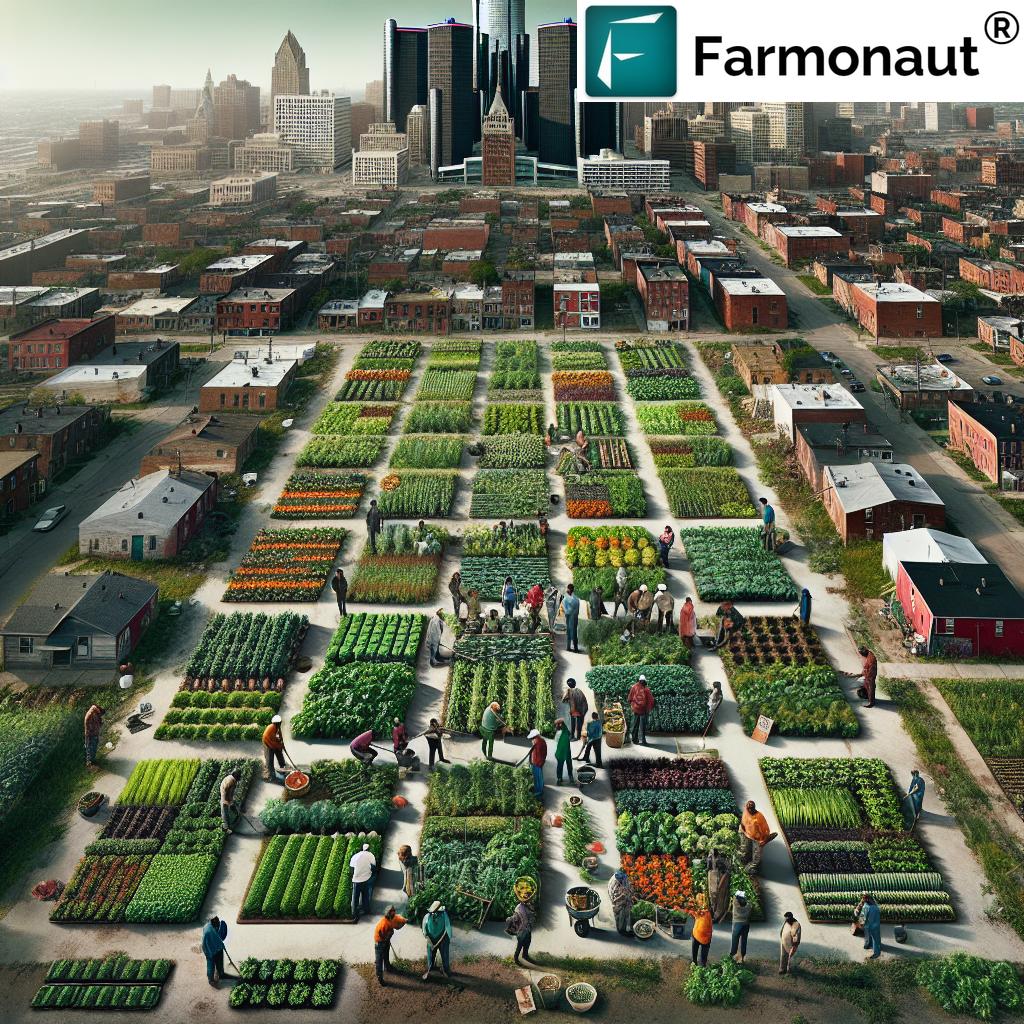
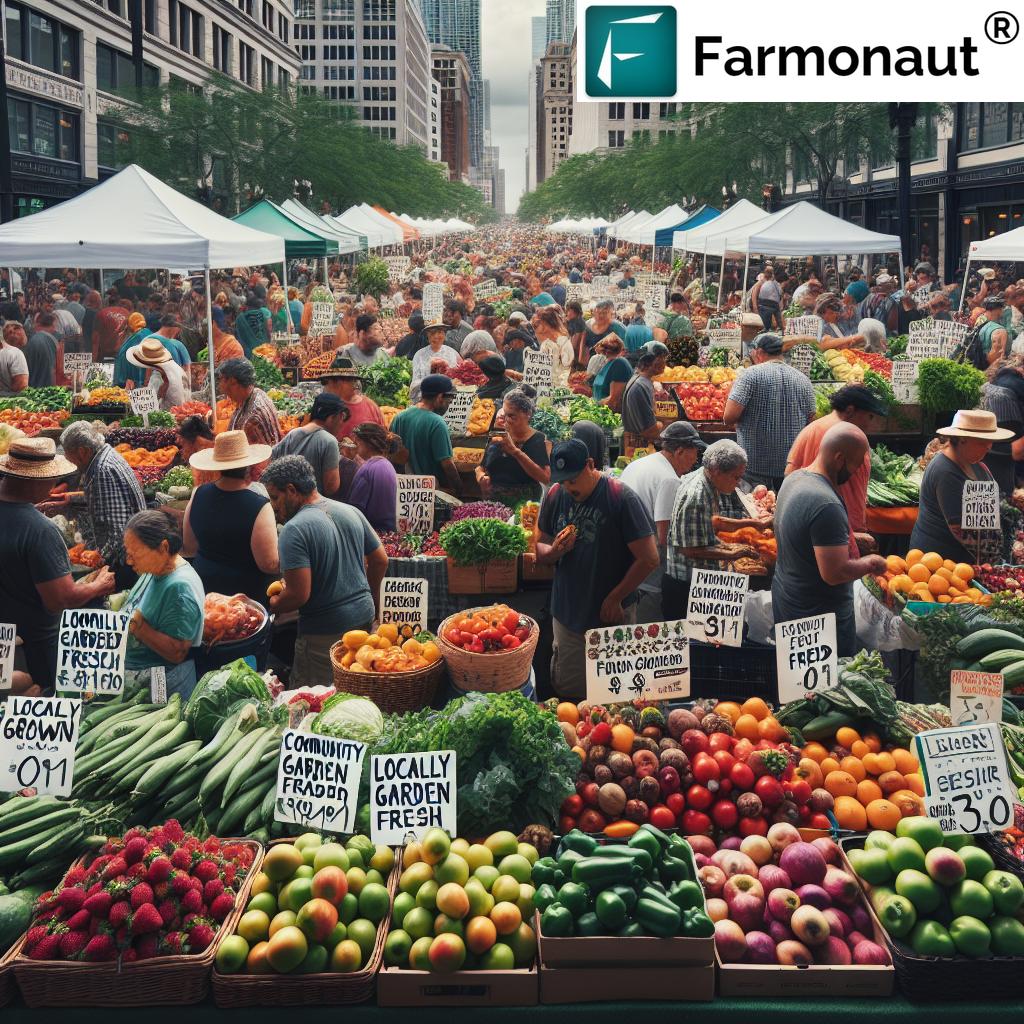












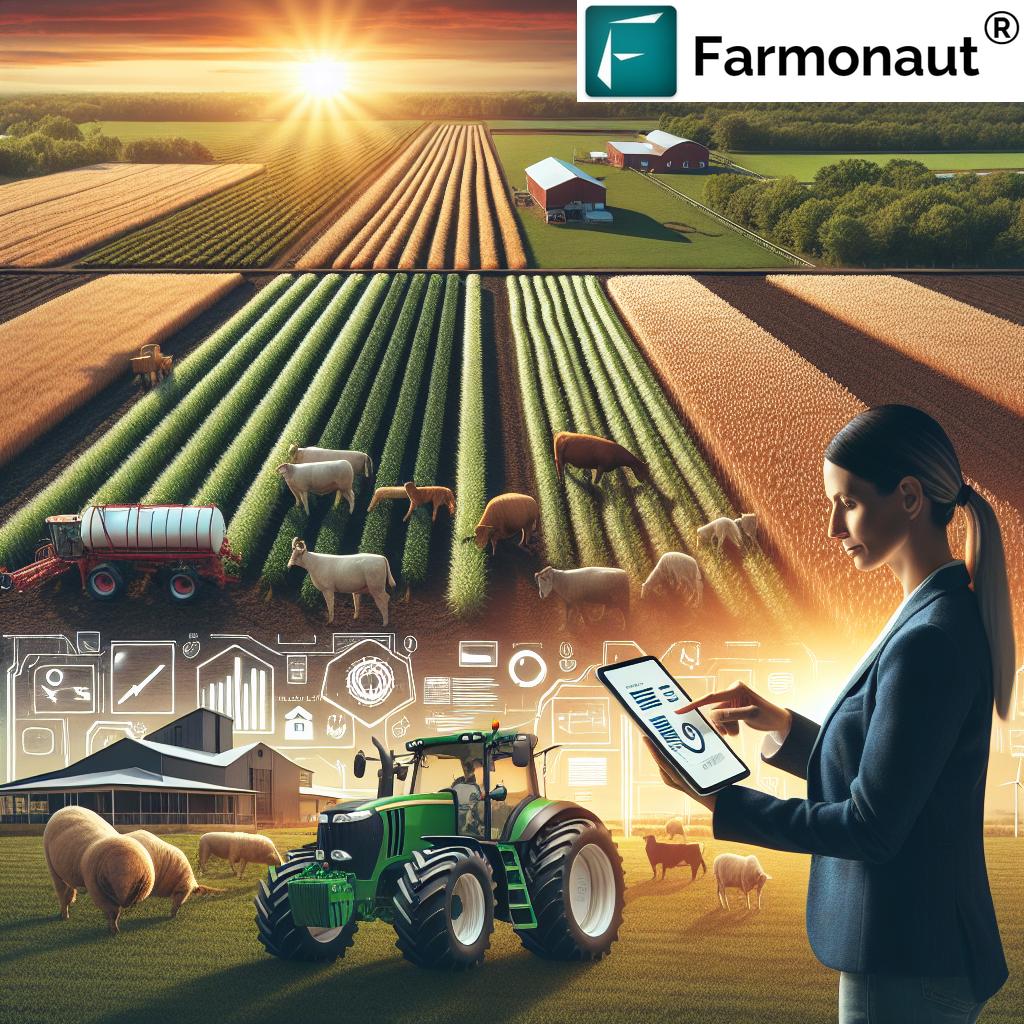
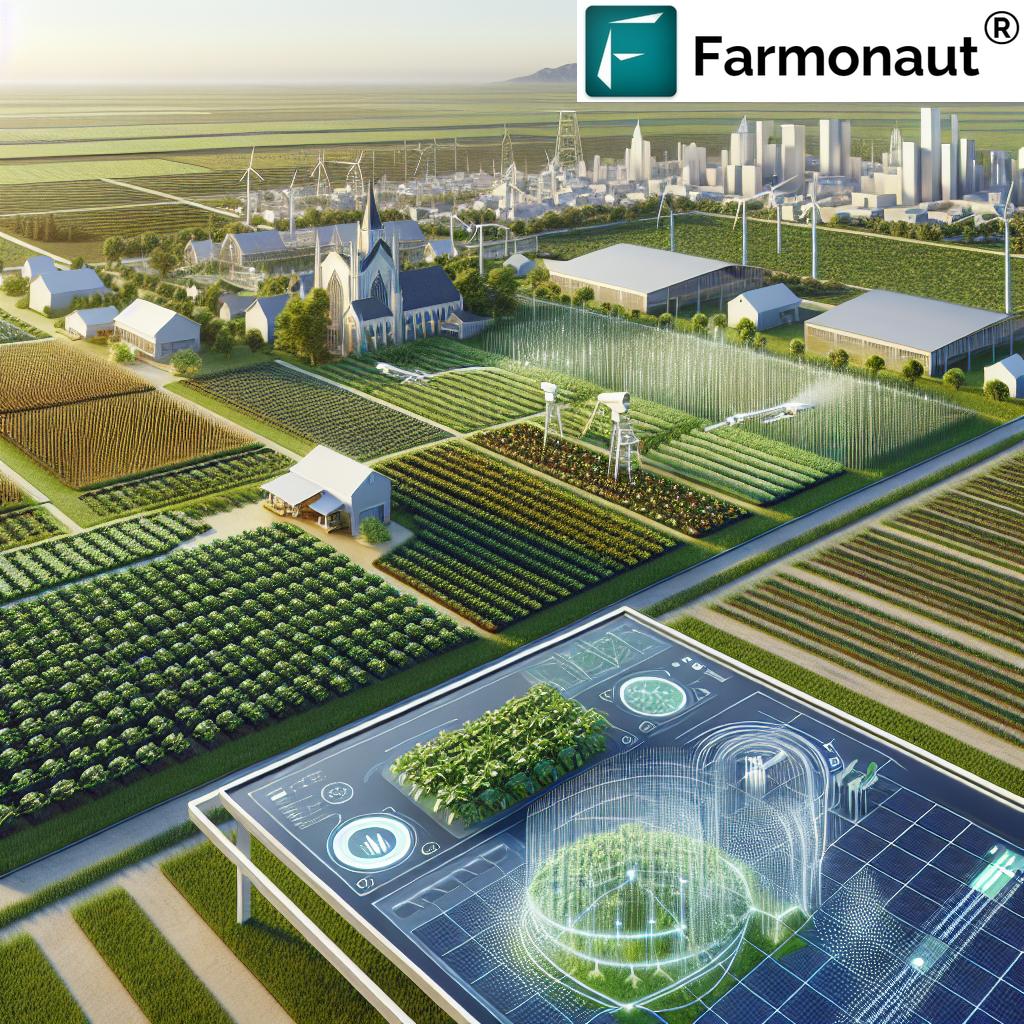

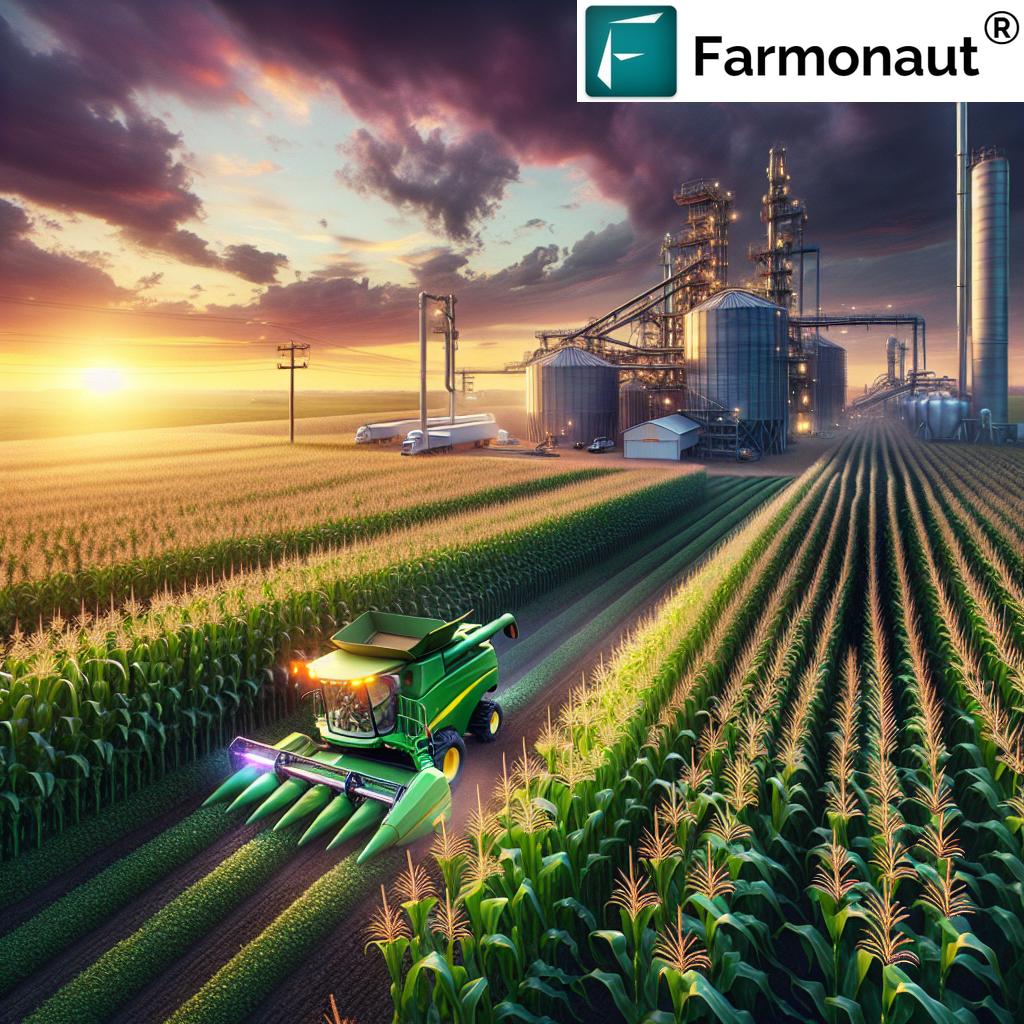
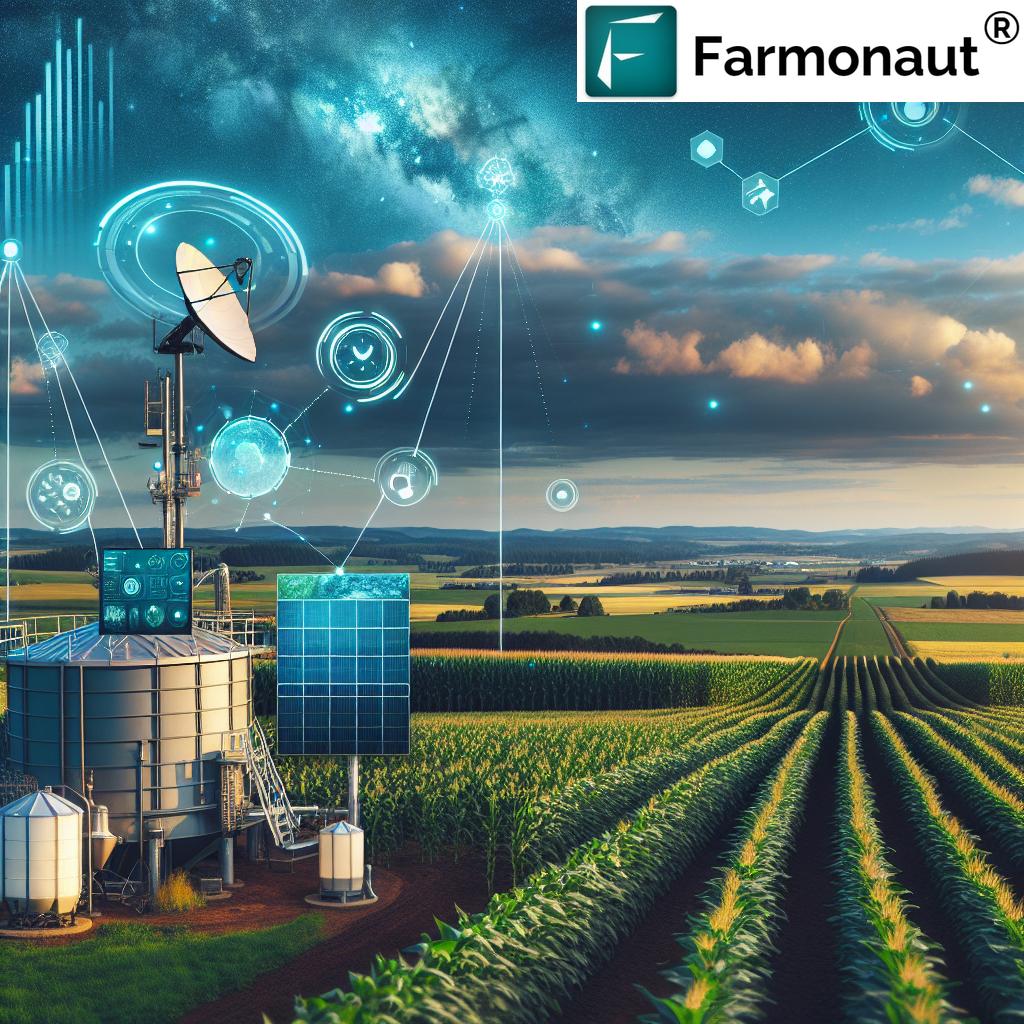

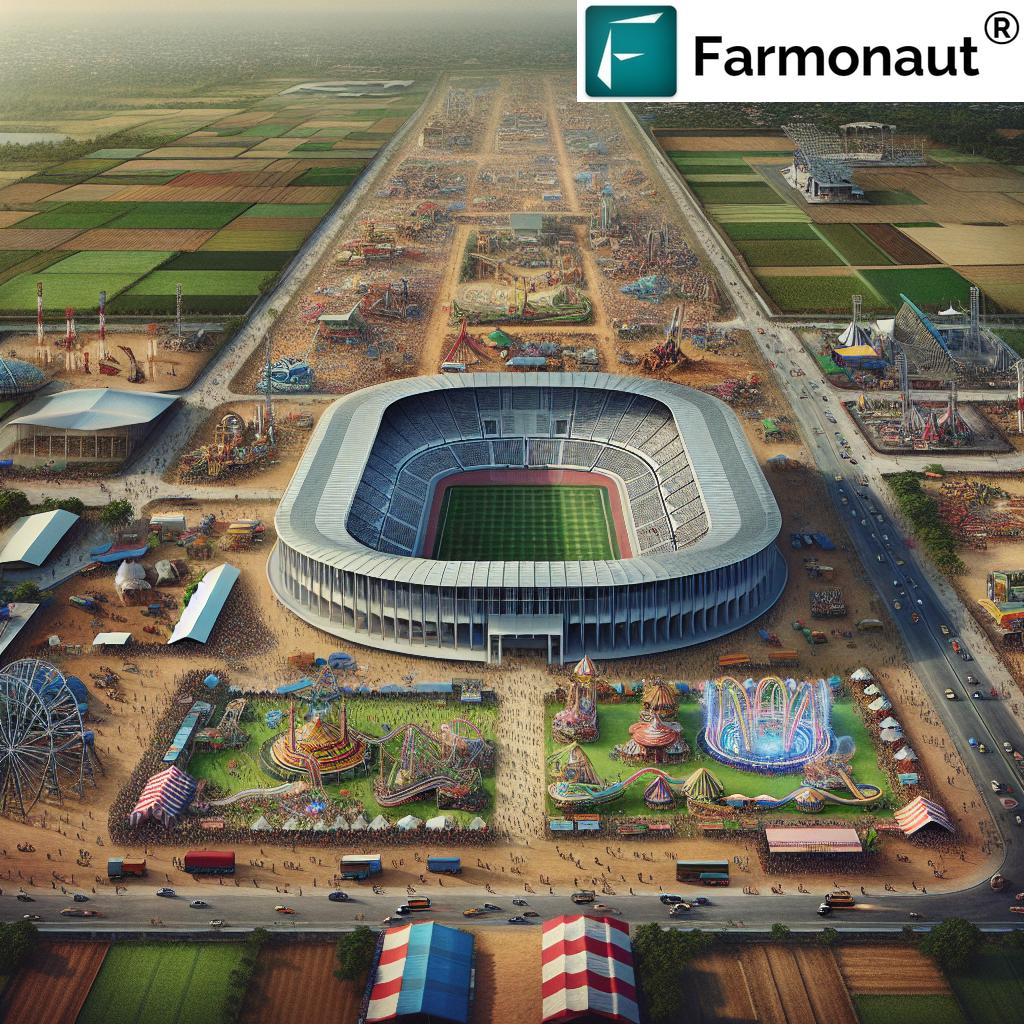

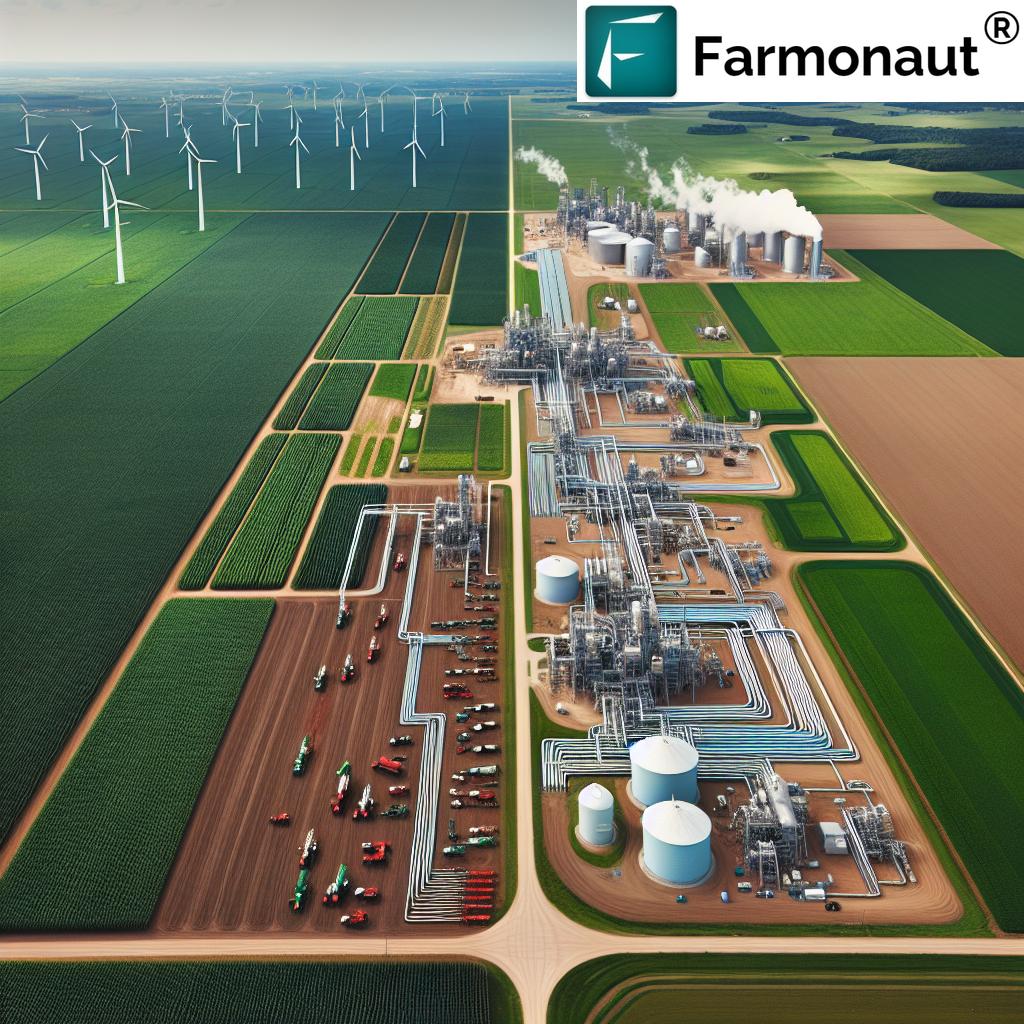
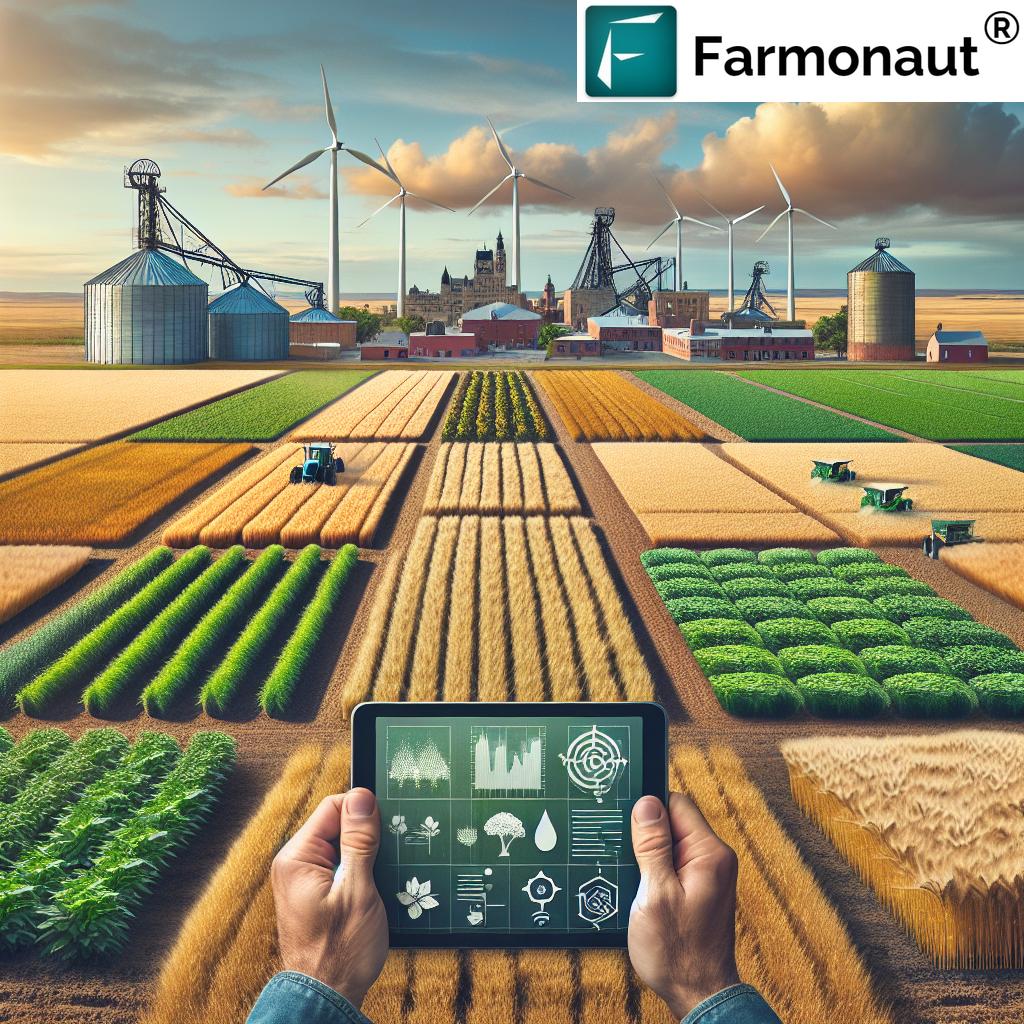
Could urban farming in Detroit become the new ‘gold rush’ for tech entrepreneurs, and if so, is this a positive or exploitative trend for the local community?